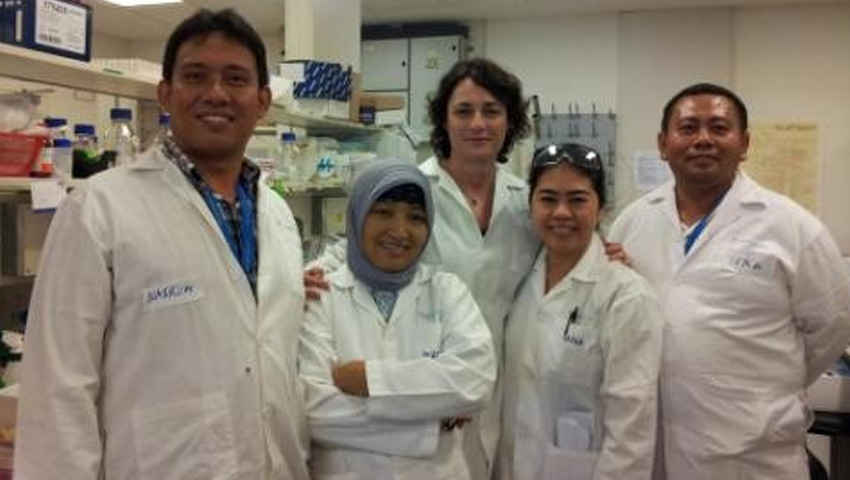Hasnawati Saleh is currently a Study Director for SAINS 2045 - An Indonesian Science Agenda Towards a Century of Independence. This initiative is led by the Indonesian Academy of Sciences (Akademi Ilmu Pengetahuan Indonesia or AIPI).
The Indonesian Science Agenda would essentially be the thoughts and vision of young scientists of Indonesia that hopefully will inspire younger generations, the general public and policy makers to advance science in this country. The Indonesian Science Agenda will be launched on 26 May 2015 as part of AIPI Silver Jubilee Celebration. It is also the first product of the Indonesian Young Scientists Network and the Indonesian Young Academy of Sciences, the latter will also be announced in May 2015.
In the process of writing up the Indonesian Science Agenda, some of the young scientists had the opportunity to meet and discuss the Agenda with Australian scientists, and to visit leading research and academic institutions in Australia through a Science Enrichment Program to Australia in 22-29 November 2014. The program was supported by the Knowledge Sector Initiative through the funding by the Government of Australia.
Below is a brief interview with Hasnawati (Nana) on her extensive professional experience and insights in medical research.
1. Besides the Indonesian Science Agenda, you are currently also the Head of the Molecular and Cellular Biology Research Group at the Medical Research Center of Hasanuddin University. Could you tell us more about this centre?
Hasanuddin University Medical Research Center (HUMRC) is newly established biomedical and health research centre that focuses into infectious diseases, cancer and metabolic/life-style-related diseases. It is capitalising on the medical and health research groups at Hasanuddin University, which was initially funded by Novartis Research Foundation through Novartis-Institute for Tropical Diseases (NITD) Singapore and PT. Novartis Indonesia since 2007. Now the centre has expanded its research area including cancer, stem cells and metabolic diseases. The centre is open to researchers from relevant health area including public health and pharmacy. My research group focuses more on the molecular epidemiology of tuberculosis and dengue as well as an interest in bone cell biology in health and diseases. The latter has been my area of interest since doing a master by research, which was then continued to PhD in Australia.
2. And you are also a lecturer. What inspire you to teaching and learning?
The reward of being a lecturer is when you see the enthusiasms of your students and that you have inspired them to leap forward towards a better future. It’s a privilege that money cannot buy!
3. You have accomplished your PhD in Medicine at the University of Melbourne, a Master of Science and Post Graduate Diploma in Science (Molecular Biology) at the University of Queensland, Australia. What makes learning in these Australian institutions valuable to you?
The scientific culture and the Australian values such as mateship and treating others as equal are very valuable to me. I am grateful to be educated to such high standards both scientifically and culturally.
4. What would be your main message to young researchers in Indonesia?
Do your best in your own field. Do whatever you can to advance science in Indonesia. Try to connect with your peers either professionally or socially in Indonesia and the world. It is a way of sharing that could lighten the challenges we face in doing research in this country and that we are not alone!






